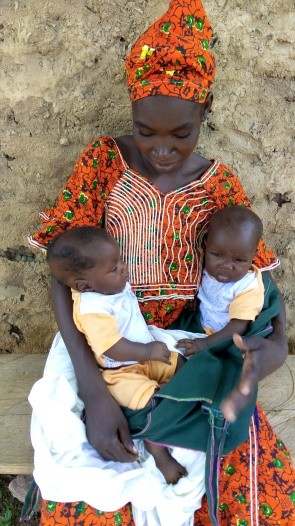Speeches Shim

September 2017—In Mali’s rural community of Tienfala, the emergency evacuation and referral system was not functioning, due in part to poor financial management. In most cases, no funding was available for emergency transport to health facilities for women developing problems during pregnancy or childbirth.
In response, USAID’s High Impact Health Services Project in Mali began helping the communities to set up funds for emergency transport in 2016. Thanks to the project’s community mobilization approach, the village’s representatives educate households on the importance of contributing to transport costs related to emergency referrals. The efforts have led to additional commitment from community members to cover the transport cost for women, which helps to save the lives of pregnant rural women and newborns.
As result, Tienfala was able to pay in advance for up to 13 cases of evacuation to higher-level referral hospitals, while the local community health association added funds for three more cases. The project supports other districts to analyze barriers associated with the low functioning of their referral and evacuation from communities to health facilities.
“The households have to confirm availability of transportation funds for every woman in need of evacuation. Then, we call for an ambulance to make the transfer,” explains Dr. Amadou Coulibaly of the Koulikoro referral hospital. “The strengthening of the referral and evacuation system allows us to save the lives of women and babies.”
During her fourth pregnancy, Kadia Coulibaly* did not receive any prenatal care. The health worker at the community health center became concerned when problems developed during Kadia’s labor and referred her to a hospital that had the necessary staffing and equipment. Thanks to good obstetric care at the referral hospital, Kadia gave birth to healthy twins.
“My wife’s evacuation was very well organized. Kadia was evacuated while I was at work. They just called me to let me know,” said her husband, Oumar.
Wariba Coulibaly was 16 years old and pregnant for the first time. After experiencing complications as she neared delivery, Wariba was evacuated from the Tienfala Community Health Center after a health worker determined that she could safely deliver at a referral hospital.
“I am very satisfied with the swift evacuation and health care she received at the hospital,” said her husband, Bourama.
USAID’s High Impact Health Services Project, which runs from 2014 to 2019, aims to reduce or eliminate maternal, newborn and child deaths in Mali. The project is implemented in five regions, six communes of Bamako, and in Gao district, providing support to 37 district hospitals, 762 primary health facilities and approximately 6,900 villages. It works with nearly 1,600 community health workers and more than 17,200 community volunteers.
*Individuals with the same name are not related.
LINKS
Follow @USAIDMali, on Facebook

Comment
Make a general inquiry or suggest an improvement.